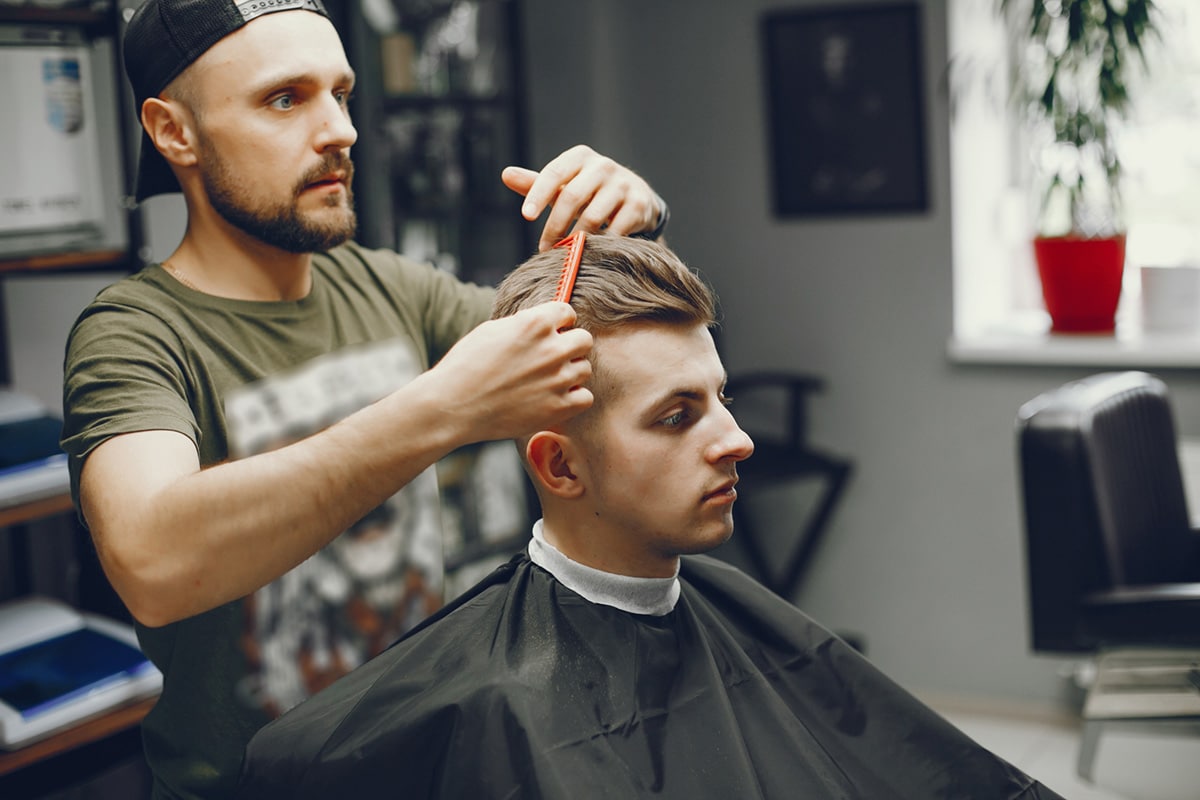Ever wondered what causes hair loss in males? Here is some useful information and what you can do to help…
Alopecia-induced hair loss is not limited to the scalp alone; it can result in loss of hair on the whole body. Such losses can be temporary or permanent and could be genetically induced or result from old age. In other cases, hormonal variations or medical conditions can be responsible.

The term ‘baldness’ is simply defined as a condition where one experiences hair loss on the scalp. Genetically induced hair loss is one of the more common reasons for baldness in ageing people. While there are people who would rather sit back and do nothing to conceal or reverse the effects of balding, others prefer the use of cosmetics, hats, wigs, or other headgear to conceal hair loss, and then there are those who favour the use of medical procedures to reverse the balding process or prevent any more loss of hair.
The experts in this field are very clear on this matter. For example, hair-transplant specialist GetHair advises that you should always speak to your doctor to determine what is causing your hair loss and find out what your options are before deciding on the best treatment procedure.
Signs of hair loss
Symptoms of hair loss vary from person to person, depending on the cause. The onset of hair loss could be rapid or gradual and could be restricted to just your scalp or every part of your body.
The following are symptoms of hair loss:
- The hair around the crown of your head is gradually getting thinner: Most people get these symptoms of hair loss as they get older. For men, hair loss starts at the forehead with their hairline gradually receding.
- Bald patches where hair used to be: These symptoms have been reported in some people. They experience balding in certain spots on their beards, scalp, or even their eyebrows. The bald spots are often circular or occur in patches around the body. Before hair falls out, the balding area is mostly painful and scratchy.
- Your hair becomes loose and falls off unexpectedly: Sometimes certain emotional experiences can trigger conditions that could lead to loss of hair. Other times physical experiences could cause the same. Tufts of hair fall off when tugged and are often seen in the drain when washing your hair, or maybe stuck on your comb when combing. Hair loss that mirrors these symptoms is temporary, even if your hair thins out in the process.
- Total body hair loss: This is often the result of medical treatments for other ailments. Chemotherapy treatments for cancer can cause you to lose hair all over your body, but all of your hair will grow back in time.
- Scaly patches on the scalp: This symptom indicates that you have ringworm. Other signs synonymous with this are redness which might be accompanied by broken hair and a swollen scalp.
How do you know you need to see a doctor?
If you or any of your children experience significant hair loss, and you are considering treating the causes, you might want to see a doctor. If you’re a lady and you notice your hairline is receding, you may need to get treatment early on to prevent considerable and irreversible hair loss. Consider having a chat with your doctor.
If you notice that you are suddenly losing more hair than you normally would, or you discover circular bald patches anywhere on your body, you should also visit your doctor. They could be pointers to an ailment that may require medical attention.
Reasons why you may be losing your hair
The average person loses about 50 to 100 strands of hair daily. We replace these lost strands almost as quickly as they fall out, so it’s not so easy to notice this. Hair loss simply means your hair is not getting replaced when it falls out.
The following are the causes of hair loss:
- Genetics
This is the most common reason why people experience hair loss as they get older. It is also referred to as androgenic alopecia. It begins slowly and displays similar balding patterns. Women will experience thinning of the hair around their crown, while men will notice their hairline receding.
- Hormonal fluctuations and ailments
Several different factors could lead to temporary or irreversible hair loss. Examples include hormonal changes in pregnancy, during childbirth, thyroid, or menopausal issues. Medical causes include hair loss due to issues in the immune system known as alopecia areata, or trichotillomania, which causes you to pull out your hair uncontrollably, and infections on the scalp such as ringworm.
- Side effects of medication
Certain side effects of drug usage could lead to hair loss. Drugs in this category include antidepressants, drugs for treating cancer, heart problems, high blood pressure, arthritis, and gout.
- Effects of radiation
When you receive radiation therapy to your head, you may experience hair loss and your hair may not return to the way it was initially.
- Stress
A stressful experience can lead to hair loss. This could be emotional or physical, but the hair loss may not be permanent.
- Hair treatment and styling
Hair loss could also result from continuously making your hair into styles that tug too tightly. This hair loss is called traction alopecia and could also result from using hot-oil treatments for your hair. Hair loss can also be permanent if scarring occurs on your scalp. Make sure to choose gentle styles that don’t endanger the hair you have. For an added confidence boost, you can also choose styles that help to disguise receding hairlines.
What factors place you at risk of hair loss?
- If you’re getting older
- You have recently lost a lot of weight
- You have bald relatives on both sides of your parent’s families
- If you have specific medical conditions such as lupus
- If you have been exposed to poor nutrition
- Stress
How to prevent hair loss
- Handle your hair gently. Do not tug aggressively at your hair when detangling, brushing or combing if your hair is wet. Do not use narrow-toothed combs for your hair so you do not lose too much of it. Steer clear of curling irons, hot rollers, permanents, and hot-oil treatments. Avoid hairstyles that tug at your hair excessively.
- Shield your hair from sunlight or any other forms of UV light.
- Confer with your doctor before taking any medication that could cause hair loss
- Quit smoking. Studies show a link between hair loss in men and smoking.
- If you’re undergoing chemotherapy, ask for a cooling cap from your doctor to reduce hair loss risks.
Genetically-induced hair loss is unpreventable, but if you follow the tips above, you can do your best to reduce the risk of hair loss.

